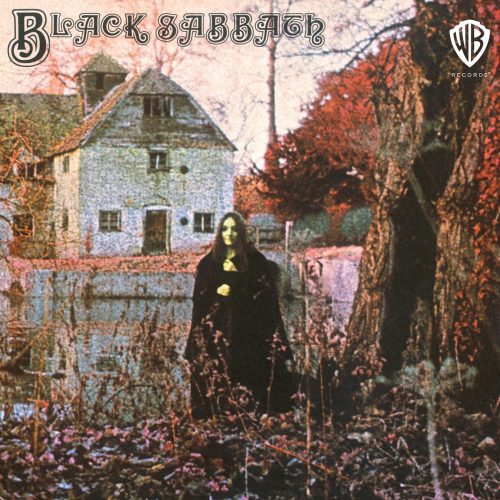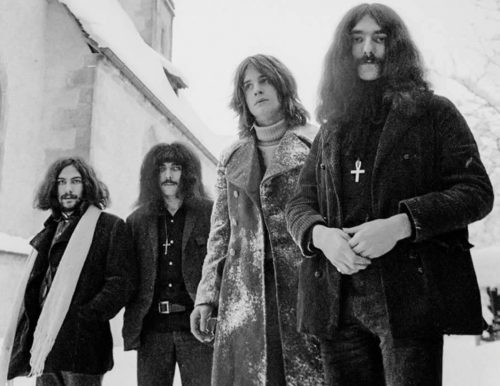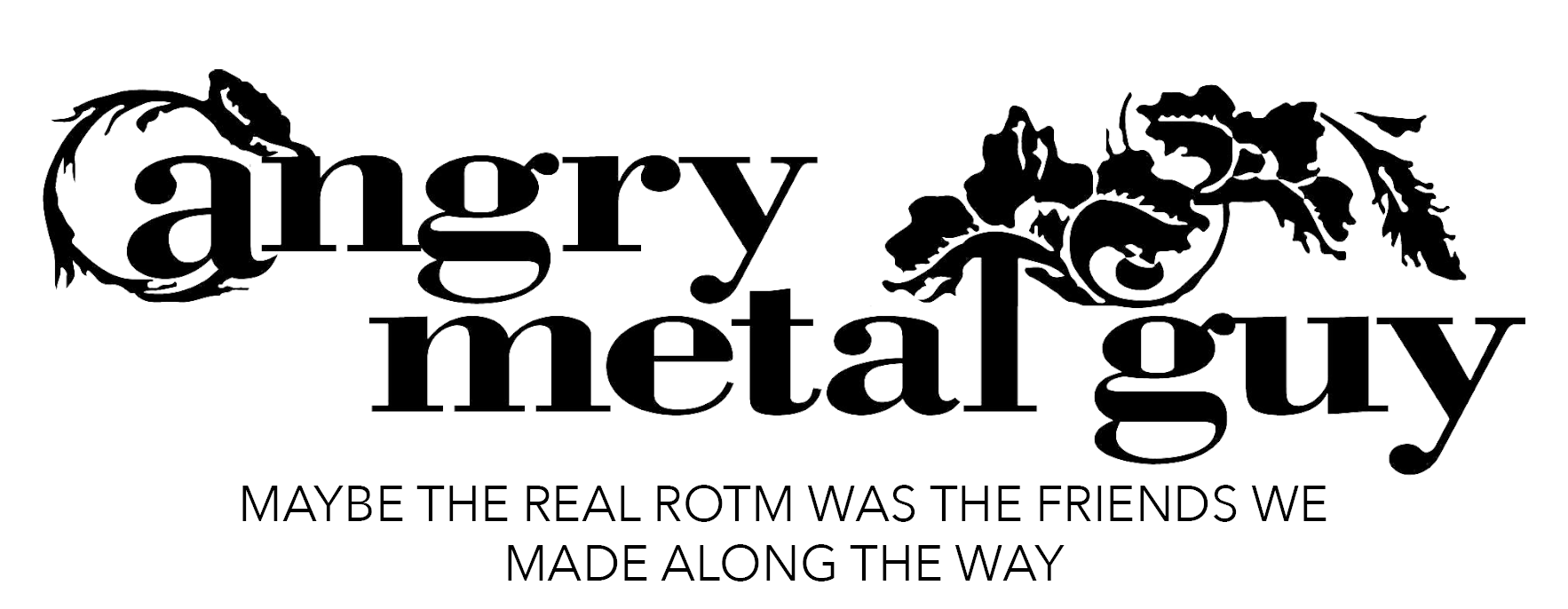 Black Sabbath’s eponymous 1970 debut might well be the ultimate Yer Metal is Olde entry. Besides being unquestionably metal, it’s also as Olde as Yer Metal can possibly get. Because, despite what a small minority of Coven and/or Blue Cheer fans might say, the release of Black Sabbath marks the birth of heavy metal itself as both a sound and a fully-formed aesthetic1. Infamously recorded in a single day, the album is more or less a live performance by a young band that was just starting to discover its own power.
Black Sabbath’s eponymous 1970 debut might well be the ultimate Yer Metal is Olde entry. Besides being unquestionably metal, it’s also as Olde as Yer Metal can possibly get. Because, despite what a small minority of Coven and/or Blue Cheer fans might say, the release of Black Sabbath marks the birth of heavy metal itself as both a sound and a fully-formed aesthetic1. Infamously recorded in a single day, the album is more or less a live performance by a young band that was just starting to discover its own power.
If you doubt this album’s influence, just take a listen to the opening title track. That initial three-note riff — you’re hearing it in your head right now — informed everything that would follow, from Judas Priest to Metallica to the entire “doom” subgenre. Vocalist John “Ozzy” Osbourne then enters with an anguished vocal counterpoint, which completely separates this track from any blues or jazz that preceded it. The faster section of this song could be considered a precursor to NWoBHM and eventually thrash metal, although Sabbath would pioneer that more thoroughly with songs like “Symptom Of The Universe” later on. I don’t even need to mention that the song literally mentions Satan by name, decades before black metal bands were casually name-checking the big red guy.
The rest of the album, while not quite as terrifying, is still a fascinating listen. “The Wizard” certainly hedges closer to late ’60s acid rock lyrically, but is distinguished by a monolithic fuzz riff and some really fun drum fills by Bill Ward. This track also features Ozzy’s first (and last) recorded appearance on harmonica. “Behind The Wall Of Sleep” is deceptively upbeat and almost funky on occasion, although the grim lyrics tell another story altogether.
In keeping with the album’s live feel, a brief Geezer Butler bass solo leads directly into the opening riff of “N.I.B.” Here, the bouncy rhythm section implies R&B or even gospel. This contrasts nicely with the song’s lyrics, which are sung from the first-person perspective of…yup, Satan. More-so than any other track on the album, “N.I.B.” foreshadows the songwriting approach that Tony Iommi would utilize for the rest of his career. Songs like “After Forever,” “Sabbath Bloody Sabbath” and even “Heaven And Hell” can be traced back to what’s happening here. Iommi also delivers some extensive soloing in this song, just five years after he lost several fingertips in a factory accident and was told he would never play guitar again.

It is at this point that the track listing splits in two. The European version of the album continues with “Evil Woman,” originally written by an American band named Crow. The song mostly shuffles along harmlessly, although Sabbath can’t help but infuse their version with a slight air of malevolence (the horn section is a nice touch too). American record buyers, meanwhile, were treated to a Sabbath original titled “Wicked World.” Originally the b-side to the “Evil Woman” single, this song has the band’s jazz roots on full display, with yet another tremendous performance by Ward. Lyrically, “Wicked World” reads like an early draft of Sabbath’s entire cynical worldview, which would be refined on songs like “War Pigs” and “Children Of The Grave” within a year or so.
The remainder of the album does descend into some more typical late-’60s motifs, for better or worse. “Sleeping Village” is more of a loosely structured jam than an actual song, and while I never noticed it until just now, Ozzy abandons the mic entirely after about 45 seconds, never to return. This track transitions smoothly into “Warning,” another obscure blues rock cover. In Sabbath’s hands, however, “Warning” is transformed into a despondent 10-minute epic, complete with various instrumental sections and a lengthy unaccompanied solo by Iommi.
And there you have it. Yes, the album is a little rough around the edges, and the band’s influences are just a bit too apparent occasionally. But regardless, Black Sabbath is one hell of a starting point, not just for the band, but for this entire genre of music that we’re still listening to 50 years later.

















